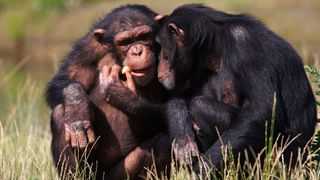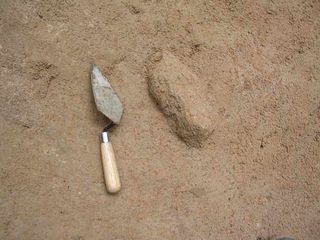Monkey
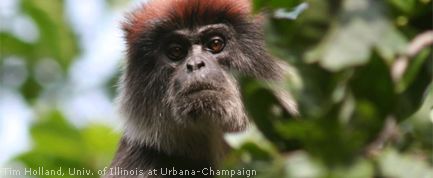
A monkey is a long-tailed, medium-sized member of the order of Primates. The primate order also includes macaques, baboons, guenons, capuchins, marmosets, and tamarins.Monkeys today are a member of two of the three groups of simian primates, the New World monkeys and the Old World monkeys, of which there are 264 known species. Apes and chimpanzees are not scientifically classified as monkeys, a common misconception due to their physical similarities.Some distinguishing features between New World and Old World monkeys include the tail. Most New World monkeys have prehensile tails while Old World monkeys do not. The facial features of each group of monkeys also differ substantially; however, there are a number of shared features as well.Monkeys are a very diverse family of species, ranging in size from the 5-6 inch Pygmy Marmoset, to the adult male Mandrill, which can be 3 feet tall. Some monkeys spend the majority if their lives in treetops, while others call savannas and grasslands home. Most monkeys survive of a diet of fruit, leaves, nuts, berries, eggs, insects and they occasionally hunt other smaller animals.
Latest about Monkeys
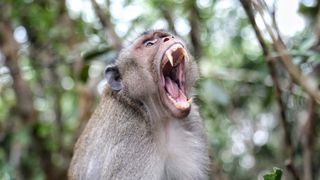
'Devil monkeys' are attacking people in Thailand, Japan and India. Here's why.
By Tracie McKinney published
Never smile with your teeth showing (or even yawn) at a monkey, as this could be considered threatening.
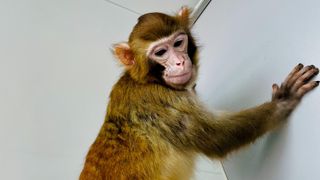
Meet 'Retro': The 1st ever cloned rhesus monkey to survive more than a day
By Sascha Pare published
Scientists have created a healthy rhesus monkey clone by providing the cloned embryo with a healthy placenta, paving the way for more efficient cloning of primates and other mammals.
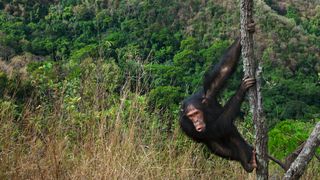
Human elbows and shoulders evolved as 'brakes' for climbing ape ancestors
By Jennifer Nalewicki published
Researchers studied chimpanzee and monkey anatomy to better understand how humans evolved to have flexible shoulders and elbows.
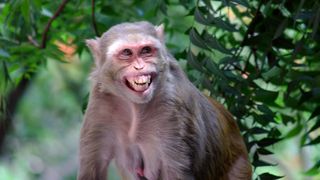
Male monkeys on tiny island have way more sex with each other than females, scientists discover
By Carissa Wong published
The rhesus macaques on Cayo Santiago that engaged in same-sex behavior were also found to have more babies, indicating an evolutionary advantage.
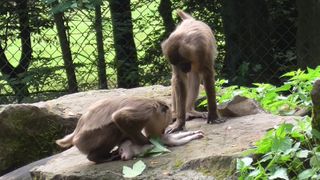
Zoo monkey eats her baby's corpse after carrying it around for days
By Harry Baker published
The mother repeatedly tried to catch the dead infant's gaze before throwing the corpse around her enclosure and eventually devouring it.
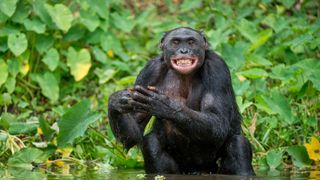
Primates have been masturbating for at least 40 million years
By Hannah Osborne published
Researchers reconstructed the evolutionary origins of primate masturbation and found it was an ancestral trait that goes back to the ancestor of all monkeys and apes.

Three chimps shot dead and four remain on the loose after mysterious zoo escape
By Ben Turner published
The zoo is now being investigated for a breach of animal rights protections.
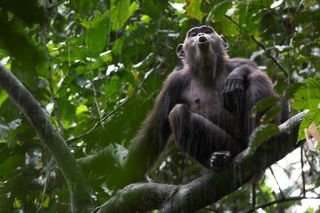
Chimps are naturally violent, study suggests
By Laura Geggel last updated
A new, 54-year study suggests coordinated aggression is innate to chimpanzees, and is not linked to human interference.
Sign up for the Live Science daily newsletter now
Get the world’s most fascinating discoveries delivered straight to your inbox.
